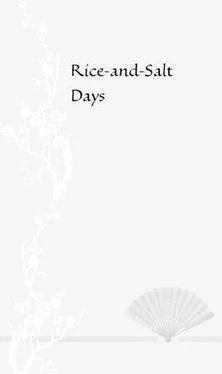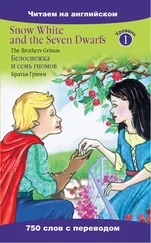Lisa See - Snow Flower And The Secret Fan
Здесь есть возможность читать онлайн «Lisa See - Snow Flower And The Secret Fan» весь текст электронной книги совершенно бесплатно (целиком полную версию без сокращений). В некоторых случаях можно слушать аудио, скачать через торрент в формате fb2 и присутствует краткое содержание. Жанр: Старинная литература, на английском языке. Описание произведения, (предисловие) а так же отзывы посетителей доступны на портале библиотеки ЛибКат.
- Название:Snow Flower And The Secret Fan
- Автор:
- Жанр:
- Год:неизвестен
- ISBN:нет данных
- Рейтинг книги:3 / 5. Голосов: 1
-
Избранное:Добавить в избранное
- Отзывы:
-
Ваша оценка:
- 60
- 1
- 2
- 3
- 4
- 5
Snow Flower And The Secret Fan: краткое содержание, описание и аннотация
Предлагаем к чтению аннотацию, описание, краткое содержание или предисловие (зависит от того, что написал сам автор книги «Snow Flower And The Secret Fan»). Если вы не нашли необходимую информацию о книге — напишите в комментариях, мы постараемся отыскать её.
Snow Flower And The Secret Fan — читать онлайн бесплатно полную книгу (весь текст) целиком
Ниже представлен текст книги, разбитый по страницам. Система сохранения места последней прочитанной страницы, позволяет с удобством читать онлайн бесплатно книгу «Snow Flower And The Secret Fan», без необходимости каждый раз заново искать на чём Вы остановились. Поставьте закладку, и сможете в любой момент перейти на страницу, на которой закончили чтение.
Интервал:
Закладка:
“I’m looking for a good match for my grandson.”
“Shouldn’t I be speaking to the boy’s father?” Madame Wang asked.
“He is away and requested that I negotiate on his behalf.”
The old woman closed her eyes as she thought about this. Either that or she drifted off to sleep.
“I hear there is a good prospect in Jintian,” I went on loudly. “She is the daughter of the rent collector.”
What Madame Wang said next told me that she knew exactly who I was.
“Why not bring in the girl as a little daughter-in-law?” she asked. “Your threshold is very high. I’m sure your son and daughter-in-law would be happy with that arrangement.”
Actually, they were quite displeased with what I was doing. But what could they do? My son was a scholar. He had just passed the next level of the imperial examinations to become a juren at the very young age of thirty. Either his head was in the clouds or he was traveling the countryside. He rarely came home, and when he did it was with outlandish stories of what he’d seen: tall, grotesque foreigners with red beards, who had wives with waists so constricted that they couldn’t breathe and huge feet that flipflopped like just-caught fish. These tales aside, my son was filial and did what his father wanted, while my daughter-in-law had to obey me. Nevertheless, she had removed herself from these discussions entirely and retired to her room to weep.
“I’m not looking for a big-footed girl,” I said. “I want to marry in a girl who has the most perfect feet in the county.”
“This child has not begun that process. There are no guarantees—”
“But you have seen these feet, am I correct, Madame Wang? You are a good judge. What do you think the result will be?”
“The child’s mother may not know how to do a good job—”
“Then I will see to it myself.”
“You can’t bring the girl into this house if you intend a marriage,” Madame Wang said querulously. “It would be improper for your grandson to see his future wife.”
She had not changed, but then neither had I.
“You are right, Madame. I will visit the girl’s home.”
“That is hardly appropriate—”
“I will be visiting often. I have many things to teach her.” I watched Madame Wang mull that over. Then I leaned forward and covered the old woman’s hand with my own. “I believe, Auntie, that the girl’s grandmother would have approved.”
Tears welled in the matchmaker’s eyes.
“This girl will need to learn the womanly arts,” I continued hurriedly. “She will need to travel—not so far as to give her ambitions outside the women’s realm, but I think you would agree that she should visit the Temple of Gupo every year. They tell me there once was a man who made a special taro treat. I hear his grandson continues the legacy.”
I persisted in the negotiation, and Snow Flower’s granddaughter came under my protection. I personally bound her feet. I showed her all the mother love I could possibly give as I made her walk back and forth across the upstairs chamber of her natal home. Peony’s feet came to be perfect golden lilies, identical in size to my own. During the long months that Peony’s bones set, I visited her nearly every day. Her parents loved her very much, but her father tried not to think about the past and her mother did not know it. So I talked to the girl, weaving stories about her grandmother and her laotong, about writing and singing, about friendship and hardship.
“Your grandmother was born of an educated family,” I told her. “You will learn what she taught me—needlework, dignity, and, most important, our secret women’s writing.”
Peony was diligent in her studies, but one day she said to me, “My writing is crude. I hope you will be forgiving of me and it.”
She was Snow Flower’s granddaughter, but how could I not see myself in her too?
I SOMETIMES WONDER which was worse, watching Snow Flower or my husband die. Both suffered greatly. Only one had a funeral procession in which three sons went on their knees all the way to the grave site. I was fifty-seven when my husband went to the afterworld, too old for my sons to think about having me marry out again or even worry about whether or not I would be a chaste widow. I was chaste. I had been for many years, only now I was doubly a widow. I have not written much about my husband in these pages. All of that is in my official autobiography. But I will say this: He gave me reasons to continue day after day. I had to make sure his meals were provided. I had to think of clever things to amuse him. With him gone, I ate less and less. I no longer cared to be an exemplar of womanhood in the county. Days drifted into weeks. I forgot about time. I ignored the cycles of the seasons. Years folded into decades.
The problem with living so long is that you see too many people pass before you. I outlived nearly everyone—my parents, my aunt and uncle, my siblings, Madame Wang, my husband, my daughter, two of my sons, all of my daughters-in-law, even Yonggang. My eldest son became a gongsheng and then a jinshi scholar. The emperor himself read his eight-legged essay. As a court official, my son is away most of the time, but he has secured the Lu family’s position for generations to come. He is filial, and I know he will never forget his duties. He has even bought a coffin—big and lacquered—for me to rest in after I die. His name—along with those of his great-uncle Lu and Snow Flower’s great-grandfather—hangs in proud men’s characters in Tongkou’s ancestral temple. Those three names will be there until the building crumbles.
Peony is now thirty-seven, six years older than I was when I became Lady Lu. As the wife of my eldest grandson, she will become the new Lady Lu when I die. She has two sons, three daughters, and may yet have more children. Her eldest son married in a girl from another village. She recently gave birth to twins, a boy and a girl. In their faces I see Snow Flower, but I also see myself. As girls we are told that we are useless branches, because we will not carry on our natal family names but only the names of the families we marry out to, if we are lucky enough to bear sons. In this way, a woman belongs to her husband’s family forever, whether she is alive or dead. All of this is true, and yet these days my contentment comes from knowing that Snow Flower’s and my blood will soon rule the house of Lu.
I have always believed the old saying that cautions, “A woman without knowledge is better than a woman with an education.” My entire life I tried to shut my ears to what happened in the outside realm and I didn’t aspire to learn men’s writing, but I did learn women’s ways, stories, and nu shu. Years ago, when I was in Jintian teaching Peony and her sworn sisters the strokes that make up our secret code, many women asked if I would copy down their autobiographies. I could not say no. Of course, I charged them a fee—three eggs and a piece of cash. I didn’t need the eggs or the money, but I was Lady Lu and they needed to respect my position. But it went beyond that. I wanted them to place a value on their lives, which for the most part were dismal. They were from poor and ungrateful families, who married them out at tender ages. They suffered the heartache of separation from their parents, the loss of children, and the indignities of having the lowest position in their in-laws’ homes, and far too many of them had husbands who beat them. I know a lot about women and their suffering, but I still know almost nothing about men. If a man does not value his wife upon marriage, why would he treasure her after? If he sees his wife as no better than a chicken who can provide an endless supply of eggs or a water buffalo who can bear an endless amount of weight upon its shoulders, why would he value her any more than those animals? He might appreciate her even less, since she is not as brave, strong, tolerant, or able to scavenge on her own.
Читать дальшеИнтервал:
Закладка:
Похожие книги на «Snow Flower And The Secret Fan»
Представляем Вашему вниманию похожие книги на «Snow Flower And The Secret Fan» списком для выбора. Мы отобрали схожую по названию и смыслу литературу в надежде предоставить читателям больше вариантов отыскать новые, интересные, ещё непрочитанные произведения.
Обсуждение, отзывы о книге «Snow Flower And The Secret Fan» и просто собственные мнения читателей. Оставьте ваши комментарии, напишите, что Вы думаете о произведении, его смысле или главных героях. Укажите что конкретно понравилось, а что нет, и почему Вы так считаете.












